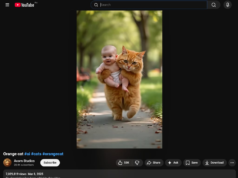
The internet is having a field day after Congress voted to repeal rules that would prevent internet service providers from selling your data without your consent.
From several GoFundMe accounts to buy the data of members of Congress, to a non-profit that will donate the proceeds from selling your data, the new development has netizens saying: Fair game.
“I will use the money raised to put every effort forth to follow through with the goal to obtain and share the internet browsing data from every politician and representative who have supported this bill,” one listing said.
Related: House Votes in Favor of Letting ISPs Sell Your Browsing History
It’s unclear how much Congress’ internet browsing would be worth — or how the person who set up the listing would obtain it. However, they’ve set an ambitious goal of $100,000. (As of Thursday afternoon, $450 had been donated.)
The measure has also spawned a call to action from Data Does Good, a company that wants to empower people to leverage their data to help in the fight for online privacy rights.
The premise: Give your Amazon shopping history to Data Does Good, and they say they’ll automatically anonymize and pool it with others before selling it on to retailers.
Data Does Good will then donate $15 on your behalf to a non-profit of your choice that is fighting for privacy rights, such as the Electronic Frontier Foundation or the ACLU.
And then there’s Petter Rudwall, an enterprising Swede who decided to put his browsing history on eBay — and, after it was removed for violating the terms of service, moved it to Craigslist.
“My browser history consists of funny, dumb, mildy interesting, smart, important and semi-NSFW pages that together will keep you entertained a long time,” the listing says. “This one is perfect for the person who feels stuck in their present internet habit, for people who always browse the same pages every day. #inspo, you know.”
The cost? 99 krona — which comes out to about $11.
If you prefer a more proactive approach and are concerned with protecting your data, now would be the time to install a VPN — that’s a virtual private network. This piece of software will encrypt your data on the internet.
A quick Google search will lead to some VPN options, which range from free to a few dollars per month. IPVanish VPN and Hotspot Shield are two popular choices.







